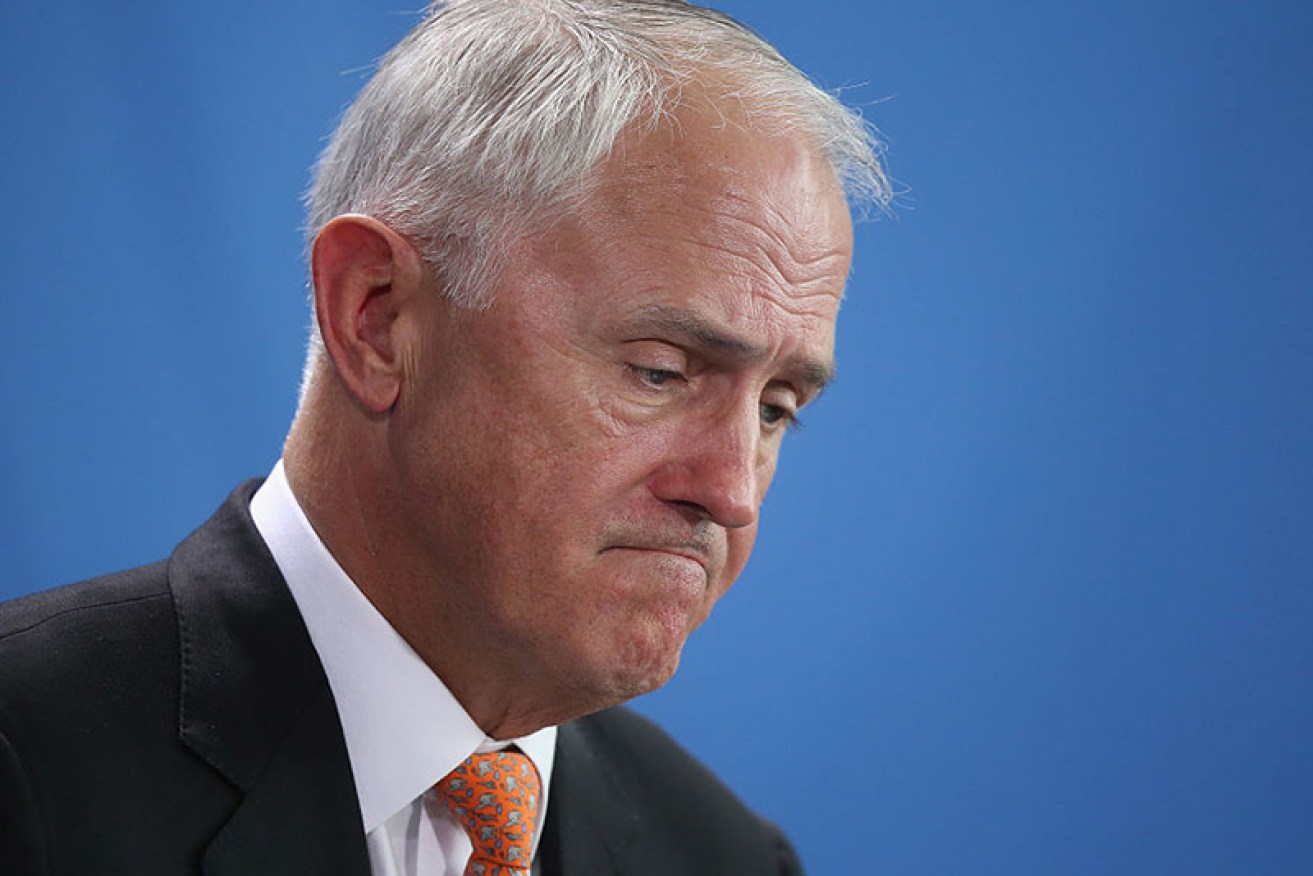Disappointing echo of the past in Turnbull’s tactics


Getty
It was not the Christmas gift voters hoped to receive from a new Prime Minister whose popularity remains somewhere up near the International Space Station.
Indeed, you could even say the quiet, holiday season dumping of two senior government ministers breaches an implicit promise of Malcolm Turnbull’s prime ministership. Namely that it is different. That he’s a communicator who will level with voters. That effective, 21st-century government, as he calls it, can do the difficult things but do them in an honourable way.
But what Mr Turnbull dished up to voters on Tuesday, with the hushed-up departures of Mal Brough and Jamie Briggs barely 30 minutes apart, came from chapter one in the manual about how to play politics the old way.
• Turnbull suffers twin blows as scandals cost two ministers
• Why 2016 is make or break for Malcolm Turnbull
• Budget repair a slow and steady race for Coalition
In that system, manipulation trumps forthright management. It privileges hiding things for fear of pain instead of owning up to problems and earning respect for transparency. It assumes voters don’t notice when a politician tries to hide a problem. But voters do, and those small deceptions are damaging over time.

MPs Jamie Briggs (L) and Mal Brough stunned the Turnbull government. Photo: Getty
That’s the real cost of the decision. If there is any benefit to hiding this news it will be short-lived, and not because people will soon forget about it.
Rather, Mr Turnbull has flagged his willingness to employ the same cheap political tactics which deliver small but frequent insults to voters. They appear harmless on their own but taken together they tarnish the character of the government.
Some will argue: “All pollies do it so why shouldn’t Mr Turnbull?”
While that sounds logical, it holds our national leadership to a low standard. We should expect better from politicians. Better should be the default offering, especially for an ‘outsider’ like Mr Turnbull.
But sadly for his supporters this was the clearest signal yet that he is prone to using the cynical ways of his predecessor or susceptible second-rate advice.
If there is one thing we already know about 2016 it’s that Mr Turnbull’s popularity will slide once the gritty business of government resumes. It must. Criticised for being a policy-free zone since his ascension, he cannot remain a small target in an election year. Standing for something electable will require cashing in some of his popularity.

The Turnbull government’s political manoeuvring bears a striking similarity to Tony Abbott’s time in power.
When he announced on Wednesday that his government would implement all 79 reforms of the Heydon Royal Commission into Trade Union Governance and Corruption, and added a few of his own, perhaps it was a sign of the conviction to come.
The PM would prefer Jamie Briggs didn’t need to step down in embarrassing circumstances, but the Mal Brough decision was more difficult.
Consider the PM’s alternative course of action: calling a press conference, announcing he had directed Mr Brough to stand down citing the police investigation, and admitting that Brough’s appointment as Special Minister for State was a mistake.
Sure, the ALP would have shouted it from the rooftops. Opponents from the right wing of his own party would have added it to their dirt file. But the electorate, upon whom Mr Turnbull’s hopes as Prime Minister rest, could legitimately claim to have a leader who respects their intelligence – with actions, not just words.
Here’s a quick reminder of Mr Turnbull’s words from the night he won the top job: “My firm belief is that to be a successful leader in 2015 – perhaps at any time – you have to be able to bring people with you by respecting their intelligence in the manner you explain things.”
The actions of this week breach the spirit of that promise.








